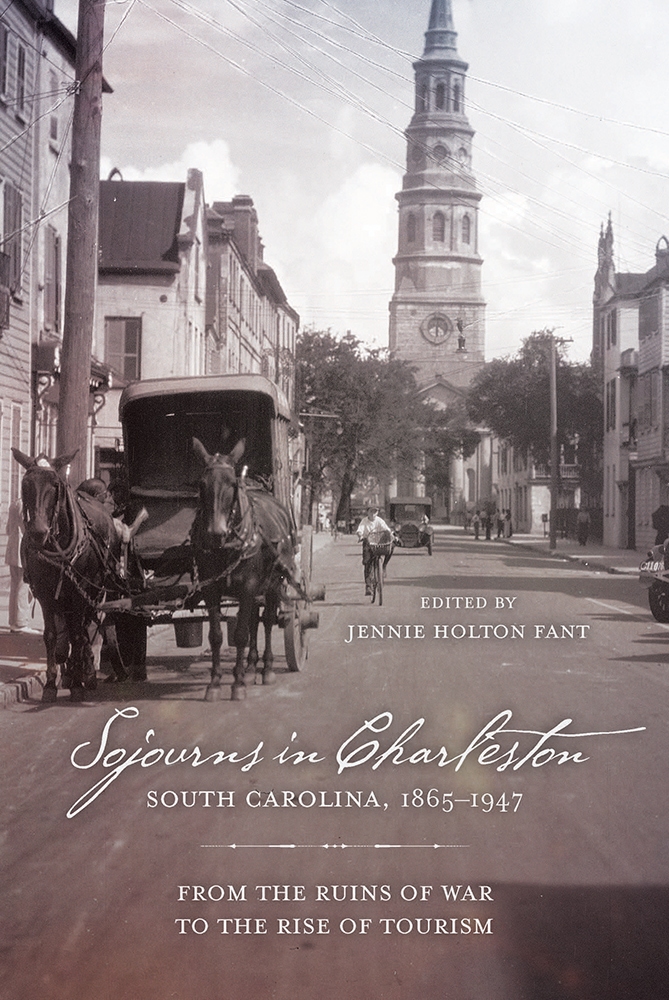Black History Month Sale: 40% off all books, plus FREE SHIPPING on all U.S. orders over $50 | Use code JBHM26

Size: 6 x 9
Pages: 392
Illustrations: 31 b&w halftones
Jennie Holton Fant
The inclusion of this book in the Open Carolina collection is made possible by the generous funding of
"Sojourns in Charleston is a must read for anyone who claims to love Charleston! These firsthand accounts from visiting writers, poets, and journalists provide important historical commentary and perspectives unique to the times in which they were written. The achievement of the collection is perhaps best summarized by Simone De Beauvoir in her essay, 'These Aristocratic Paradises' when she says of Spanish Moss: 'This is a strange parasite, symbolizing in its splendor and abjectness the contradictions of a magnificent and sordid land.'"—Michele Moore, author of The Cigar Factory
"Charleston has intrigued visitors for centuries—provoking ire, desire, enmity, and envy. Collected here are some of their most intriguing and thought-provoking views, with riffs that range from rage to praise, from ruin to renaissance, from the Civil War to after World War II. A must read for those who love—or think they know—the city."—Harlan M. Greene, scholar in residence, Special Collections, Addlestone Library College of Charleston
"arresting collections of narratives about the city during the period 1865–1947... Fant, a former Charleston resident, has done an impeccable job, providing an education on a century of Charleston history as seen by outsiders."—The Post and Courier (Charleston)
Copyright 2026
Website By Morweb.org